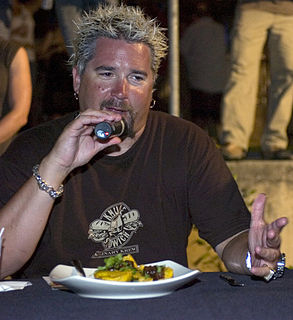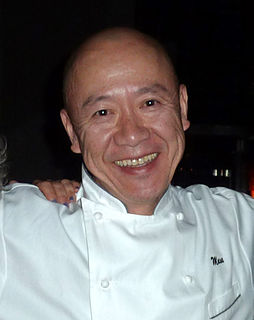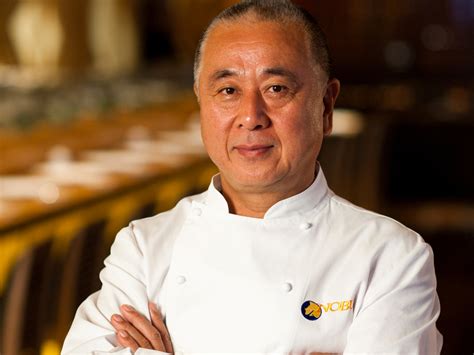A Quote by Guy Fieri
In Japanese, sushi does not mean raw fish. It means seasoned rice.
Related Quotes
Think of the sushi trend that started in the '80s. It was as much about the Nintendo entertainment system in your living room as it was about the availability of good-quality raw fish. The Japanese food trend rose as the world of Japanese business and culture was becoming a bigger part of American life.
My job the same as carpenter. What kind of house you want to build? What kind of food you want to make? You think your ingredients, your structure. Simple. [Other] Japanese restaurants … mix in some other style of food and call it influence, right? I don't like that. … In Japanese sushi restaurants, a lot of sushi chefs talk too much. 'This fish from there,' 'This very expensive.' Same thing, start singing. And a lot have that fish case in front of them, cannot see what chef do. I'm not going to hide anything, right?
If you are happy in a dream, Ammu, does that count? Estha asked. "Does what count?" "The happiness does it count?". She knew exactly what he meant, her son with his spoiled puff. Because the truth is, that only what counts, counts....."If you eat fish in a dream, does it count?" Does it mean you've eaten fish?
































